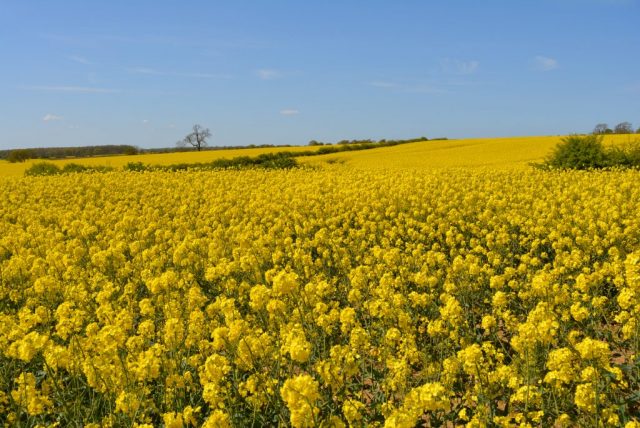New code approved to minimise risk of elevated erucic acid levels in certified seed
25th April 2018
The Agricultural Industries Confederation (AIC) and the British Society of Plant Breeders (BSPB), representing the seed breeding and distribution of certified seed, have launched a new code of practice to
The Agricultural Industries Confederation (AIC) and the British Society of Plant Breeders (BSPB), representing the seed breeding and distribution of certified seed, have launched a new code of practice to demonstrate that elevated levels of erucic acid, seen in oilseed rape crops over the past three years do not originate from certified seed.
As part of gaining official registration in the UK, all varieties are tested to ensure erucic acid levels are consistently close to zero. The new code, aimed to provided added certainty, will mean that all seed and seed lots of certified seed will be subject to Gas Chromatography testing prior to delivery to farm. The results of such testing will be available on request.
While adoption of the new code is voluntary, both AIC and BSPB will encourage their members to participate to provide additional assurance to farmer customers and the wider oilseed chain. Both AIC and BSPB aim to give added confidence that certified seed is not the source of the issues that have occurred with high levels of erucic acid in commercial crops of oilseed rape.
“BSPB supports this Code of Practice as a way for plant breeders and the certified seed trade to demonstrate that we take the problem seriously, and are taking action to provide an assurance that certified seed is not the source of the problem. We would also encourage farmers to adopt the same practices if they are farm saving to ensure a common, industry-wide approach across all oilseed rape production,” said Dr Penny Maplestone, BSPB’s Chief Executive.
“The certified seeds industry takes every step to ensure farmers receive high quality seed. We have worked together on this Code of Practice to demonstrate to farmers that seed from a certified source is not the cause of the elevated erucic acid levels being found at harvest,” said Chris Guest, Chair of the AIC Combinable Crops Seeds Committee.

